kategori film tahun 1910
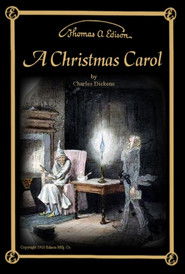 Miser Ebenezer Scrooge is awakened on...
Miser Ebenezer Scrooge is awakened on...A Christmas Carol 1910
Miser Ebenezer Scrooge is awakened on Christmas Eve by spirits who reveal to him his own miserable existence, what opportunities he wasted in his youth, his current cruelties, and the dire fate that awaits him if he does not change his ways. Scrooge is faced with his own story of growing bitterness and meanness, and must decide what his own future will hold: death or redemption.
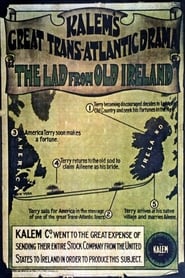 A young man leaves Ireland for...
A young man leaves Ireland for...The Lad from Old Ireland 1910
A young man leaves Ireland for America, but doesn't forget home.
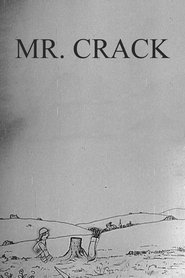 In the course of various unfeasible...
In the course of various unfeasible...Mr. Crack 1910
In the course of various unfeasible adventures, Monsieur de Crac finds himself comfortably installed in Mount Etna, smoking a pipe, when he is confronted by the Monster of the Volcano, who throws him down into the bowels of the earth and out into an ocean on the other side of the world
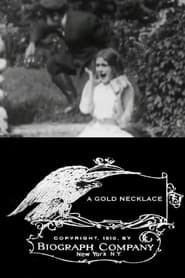 Mazie lends her necklace to Nellie...
Mazie lends her necklace to Nellie...A Gold Necklace 1910
Mazie lends her necklace to Nellie, her guest. Nellie is asleep in a hammock when Sam, her sweetheart, arrives in his auto. He awakens Nellie with a kiss. As she starts up she drops the necklace in the grass and their efforts to find it prove futile. Sam promises to buy her one to replace it, thinking it was her own properly. He has her minutely describe it that he may get an exact duplicate. Meanwhile, the governess has found the necklace and given it to its owner, Mazie, who is unknown to Sam. He sees it on Mazie's neck and after a chase insists on purchasing it.
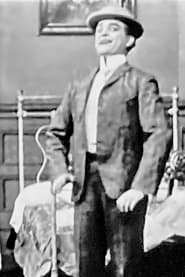 Two spinsters on their way to...
Two spinsters on their way to...Muggsy Becomes a Hero 1910
Two spinsters on their way to church, are accosted by a couple of burly tramps. When Mabel is called to the church meeting with her mother, she sends Muggsy a note asking him to meet her after the service so he may walk home with her. Muggsy is there on time, however, the old ladies are afraid to make the return trip unaccompanied. The pastor asks that a man escort them home. Poor Muggsy gets chosen, and when the trio reach the deserted part of the road, the tramps again appear.
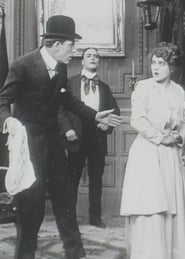 The young husbands irrational jealousy makes...
The young husbands irrational jealousy makes...A Victim of Jealousy 1910
The young husband's irrational jealousy makes him suspicious of every attention bestowed upon his wife. Even the minister, who performed their marriage ceremony, making a pastoral call annoys him. They attend a social gathering, and his ill-concealed perturbation at his young wife's affability with all present spoils her evening's pleasure, and finally induces her to ask to be taken home. Arriving home, a stormy scene ensues, and there might have been a separation but for the wife's subtleness in placing within his range delicate reminders of her own gentleness.
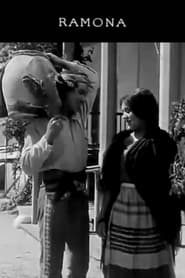 Ramona residing on her wealthy Spanish...
Ramona residing on her wealthy Spanish...Ramona 1910
Ramona, residing on her wealthy Spanish adoptive mother's rancho in California, falls in love with the Indian Alessandro. When Ramona is denied permission to marry Alessandro, the lovers elope, only to find a life of great hardship and unhappiness amidst the greed and injustice of the white landowners.
 In the heart of the American...
In the heart of the American...Over Silent Paths 1910
In the heart of the American west, a miner toils day after day at his rocker box while his young daughter keeps his camp. His daughter persuades him to return to civilization, where they may enjoy the fruits of their labor. Both are happy in the anticipation of what seems a bright future. While she's away, a desert wanderer appears at the camp, and at the sight of the old man weighing his gold is seized with cupidity. He himself had toiled long in the wilds, but with no success, so he demands that the old man divide his gains with him. This, of course, the miner decries, and the wanderer uses force to obtain the old man's gold. The wanderer collapses in the desert, only to be rescued by a certain young woman: the miner's daughter.
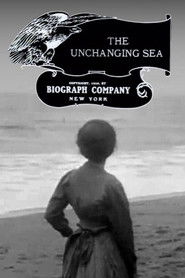 In this story set at a...
In this story set at a...The Unchanging Sea 1910
In this story set at a seaside fishing village and inspired by a Charles Kingsley poem, a young couple's happy life is turned about by an accident. The husband, although saved from drowning, loses his memory. A child is on the way, and soon a daughter is born to his wife. We watch the passage of time, as his daughter matures and his wife ages. The daughter becomes a lovely young woman, herself ready for marriage. One day on the beach, the familiarity of the sea and the surroundings triggers a return of her father's memory, and we are reminded that although people age and change, the sea and the ways of the fisherfolk remain eternal.
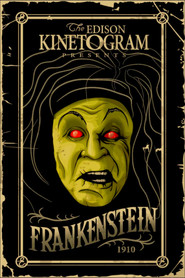 Frankenstein a young medical student trying...
Frankenstein a young medical student trying...Frankenstein 1910
Frankenstein, a young medical student, trying to create the perfect human being, instead creates a misshapen monster. Made ill by what he has done, Frankenstein is comforted by his fiancée; but on his wedding night he is visited by the monster.
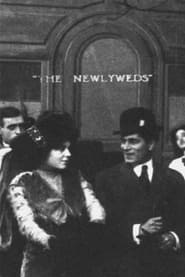 A young man and a young...
A young man and a young...The Newlyweds 1910
A young man and a young woman, each unlucky in love, determine never to marry. But Cupid (and two separate bands of misinformed revelers) has other ideas.
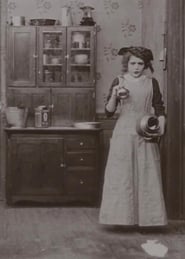 The hero a young contractor is...
The hero a young contractor is...All on Account of the Milk 1910
The hero, a young contractor, is mistaken by the heroine for a laborer, while he thinks she is the maid although she is the daughter of the manor. The hero continues to represent himself as a laborer in order to see the maid. The daughter, in order to continue her impersonation, borrows the maid's clothes. At the end the two main characters are brought together in their true light with the blessing of their respective mothers.
 A pretty young woman attempts to...
A pretty young woman attempts to...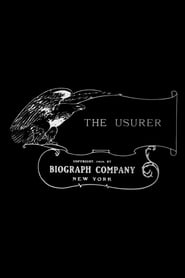 A wealthy callous moneylender finds a...
A wealthy callous moneylender finds a... An experiment goes wrong and blinds...
An experiment goes wrong and blinds...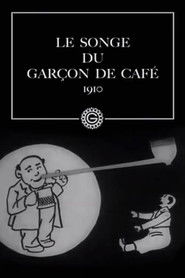 Four customers are having a peaceful...
Four customers are having a peaceful...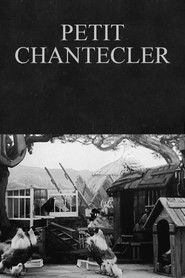 mile Cohl uses stopmotion animation to...
mile Cohl uses stopmotion animation to...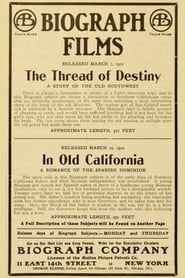 An historical dramatization of a Spanish...
An historical dramatization of a Spanish...